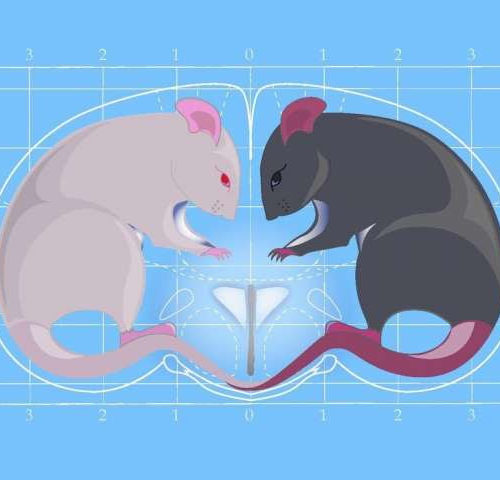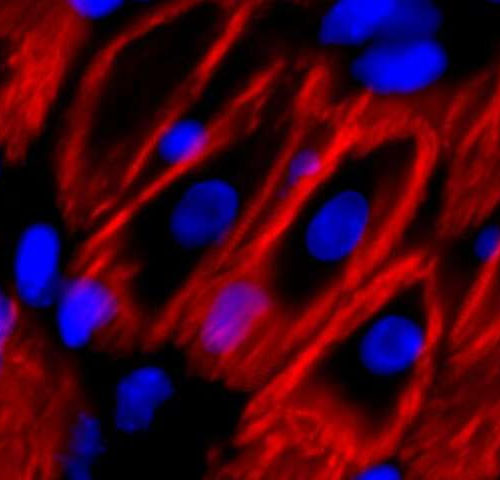by Max Planck Society During the pandemic lockdown, as couples have been forced to spend days and weeks in one another’s company, some have found their love renewed while others are on their way to divorce court. Oxytocin, a peptide produced in the brain, is complicated in that way: A neuromodulator, it may bring hearts...
Tag: <span>pharmaceutical updates</span>
Scientists develop new method to synthesize cotylenin A
Reviewed by James Ives, M.Psych. (Editor) An anticancer drug of fungal origin could be the way. Scientists at Waseda University succeeded in developing a method for a total synthesis of cotylenin A, a plant growth regulator which has attracted considerable attention from the scientific community due to its promising bioactivity as an anti-cancer agent. This...
Heart cells can rejuvenate and multiply to heal damage
by UT Southwestern Medical Center UT Southwestern Medical Center scientists have discovered a protein that works with others during development to put the brakes on cell division in the heart, they report today in Nature. The findings could eventually be used to reverse this developmental block and help heart cells regenerate, offering a whole new...
What time of day should I take my medicine?
by Nial Wheate and Andrew Bartlett, The Conversation Whether you need to take a drug at a specific time of day depends on the medication and the condition you are treating. For some medicines, it doesn’t matter what time you take it. And for others, the pharmacist may recommend you take it at the same time each day. But we estimate that for around 30% of all medicines, the time...
Repurposing heart drugs to target cancer cells
by MRC London Institute of Medical Sciences Senescence is a cellular stress response that results in the stable growth arrest of old and damaged cells. The past decade has revealed that senescent cells play important roles in a growing list of diseases from cancer, to arthritis, atherosclerosis and many more. Previous studies have shown that...
When added to gene therapy, plant-based compound may enable faster, more effective treatments
Scripps Research team finds that a nontoxic molecule closely related to resveratrol can overcome barriers to delivering gene therapy into stem cells. SCRIPPS RESEARCH INSTITUTE LA JOLLA, CA – Gene therapy has broadened the treatment possibilities for those with immune system deficiencies and blood-based conditions, such as sickle cell anemia and leukemia. These diseases, which...
Safe and efficient tool to reduce seniors’ medication overload
by McGill University A study shows that MedSafer, an electronic decision-support tool developed by RI-MUHC researchers, helps reduce inappropriate medications prescribed to the elderly The elderly are often prescribed multiple medications for different health conditions. While some medications are needed, polypharmacy and medication overload can be costly and even harmful. However, reducing the number of potentially inappropriate medications...
Two commonly used uveitis drugs perform similarly in NIH-funded clinical trial
Posted Today Methotrexate and the more expensive mycophenolate mofetil performed similarly in a head-to-head clinical trial that compared the two drugs for treating noninfectious uveitis, an eye disease that accounts for up to 15% of blindness in the U. S. In cases of more severe disease, posterior uveitis and panuveitis, the international trial showed that...
Many cancer drugs aim at the wrong molecular targets
Analysis using CRISPR gene-editing technology suggests that drugs’ mechanism of action are misunderstood. Heidi Ledford Many experimental cancer drugs might be succeeding in unintended ways, finds a study that used CRISPR–Cas9 gene editing to investigate how such drugs interact with malignant cells. An analysis of ten drugs — including seven now in clinical trials —...
Old Drugs in Your Medicine Cabinet? Here’s What to Do with Them
Posted Today They’re haunting the back of your medicine cabinet like the Ghosts of Illnesses Past. Pain pills your doctor prescribed years ago after that operation. Antibiotics from a child’s last ear infection. Half-finished, crusty bottles of cough syrup and leftover sleeping pills. It’s bad enough these old drugs are taking up valuable storage space. But they could also be dangerous to people and...
- 1
- 2


